The Los Angeles screening of this emotionally packed love story was a great success culminating with an extravagant performance of the theme song by a red feather-laden sequined performer after which the director, Ali Muritiba spoke in careful terms, so as not of offend the Brazilian consulate, an honored guest, about the film that is sure to offend the country’s reactionary strongman Bolsanaro.
My interview with Aly revealed a man very concerned with the social and political aspects of his beloved country Brazil. He says,
I have dedicated the recent years of my career in cinema to reflect on the masculine affection, the masculine way of being and loving in contemporary Brazilian society, an essentially conservative and patriarchal society. The question I asked myself in the past and right now is: How do we men love? How can we express what we feel without hurting each other? How to do that, if we are taught all the time that we must be strong, firm, cold?
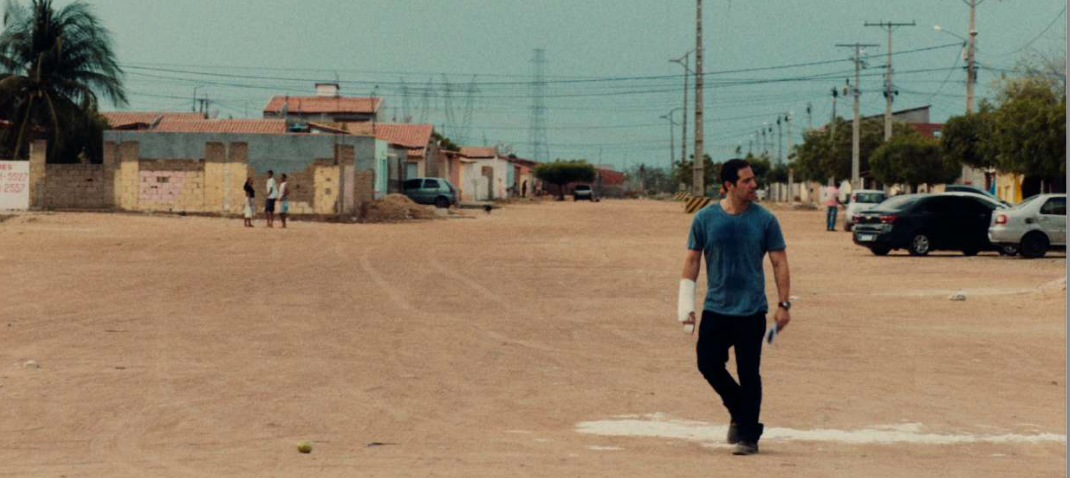
In the course of our discussion, it came out that Aly worked for seven years as a prison guard which he describes as a “strange and amazing experience. I learned alot about the men and humanity and how complex the human being is…the exerience taught me how to tell stories. During the job I became a filmmaker. my first two shorts and my feature documentary were made while I was a prison guard.
I wanted to make a film about masculine affection, the way men are raised in this culture. We learn to deal with our emotions in a violent way. Such toxic masculinity is violent to other people so I chose a policeman to be the main character for violence is a permanent aspect of his machismo. But I realized the audience would not become involved with him if he was not able to love someone. I made him a complex person with an oppressive father to take care of which he does with loving kindness. This could be shared with an audience and they would see that conservative people like a policemen can be tender and gentle and take care of someone, even love someone who he doesn’t even know yet.
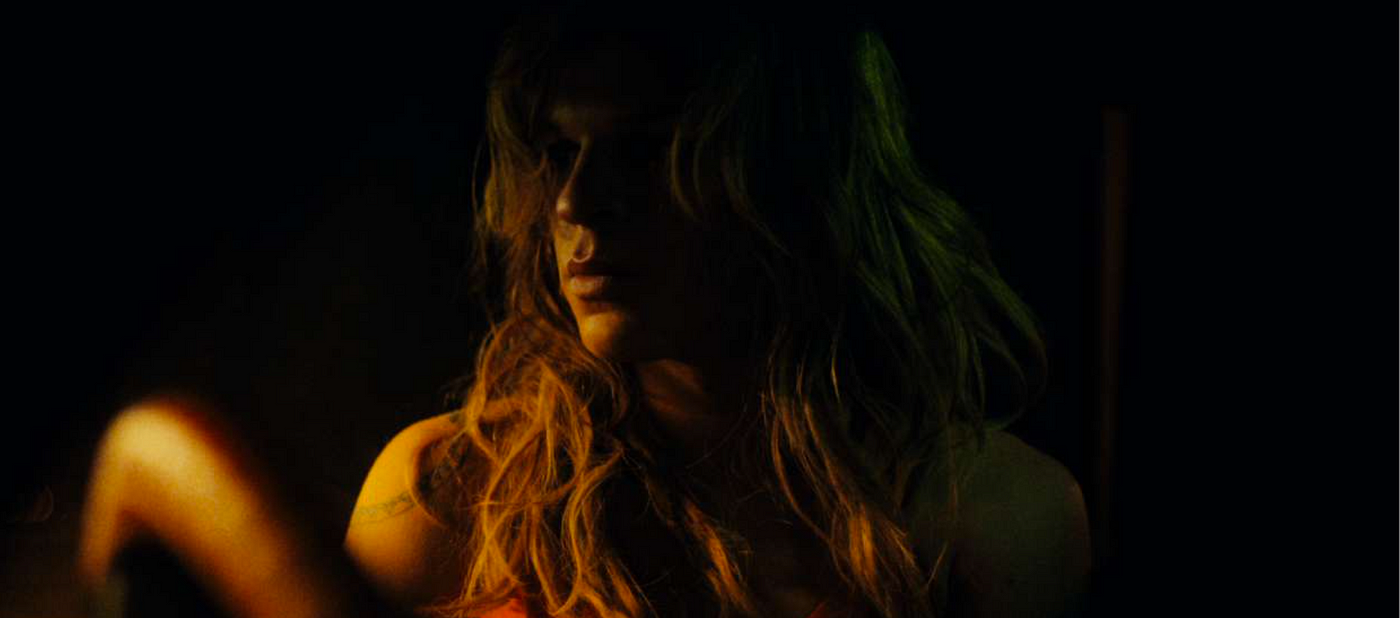
How did Daniel find Sara? I thought they had met once and Sara disappeared on him, but …
They met on an app or instagram where he was looking for a girl. He wasn’t looking for a sex experience but for someone able to hear him. It was hard for Daniel to express his feelings. The only way to talk about himself is on his cel or on the internet to someone who was able to hear him and his feelings…
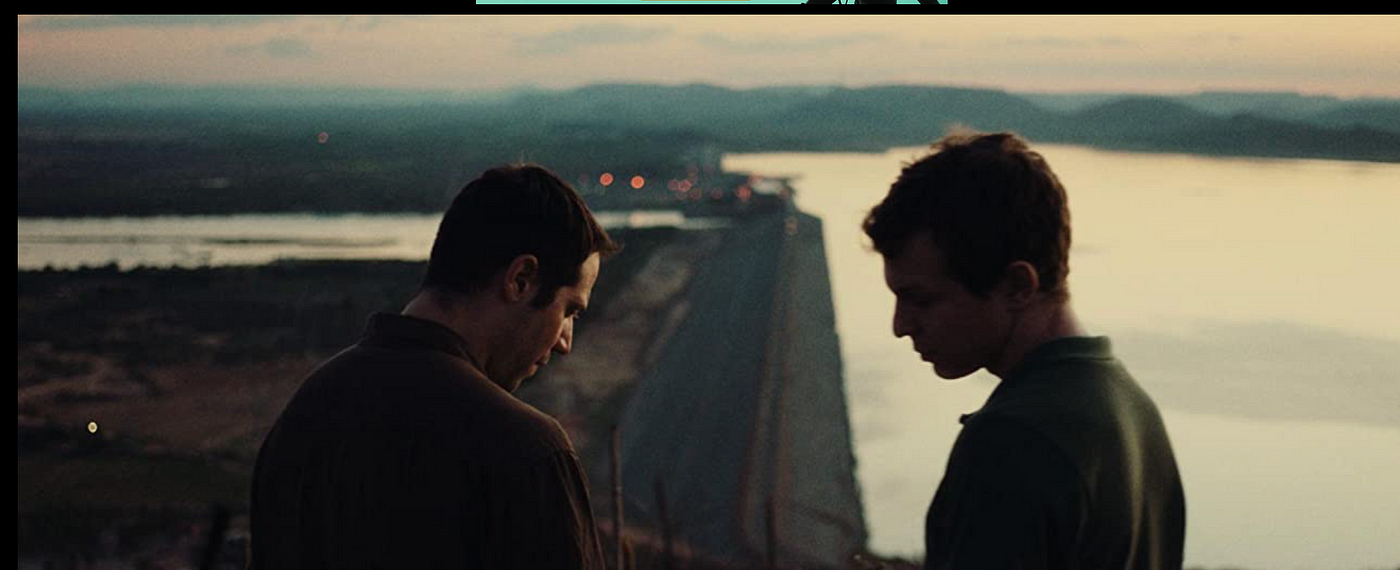
I notice many of your films have cel phones. In Rust, two people are trading pics, videos and music by their cell phones, and on the last school trip they start making eye contact, in A Fábrica the story revolves around a cel phone…
Yes, today, as soon as you wake up you check messages. The cel phone is present in our day all the time. We say “I love you” over the cel phone The cel phone is a constant presence and a great tool to start telling a story.
I noticed you were kind of circumspect in addressing your audience and introducing the Consulate. This film would not be liked by the Bolsonaro government and yet is was submitted as the country’s Oscar hopeful.
Yes, the man himself is very nice though he works for a very bad man. The film was chosen by a small committee of the Brazil Cinema Academy as representing the country’s culture, not the government itself or its policies. Bolsanaro hates the queer community and this is about love between two guys.
The government of Bolsanaro cut all film funds. How did this film get financed?
It was a coproduction with Portugal, Ibermedia supplied some funds as did the international sales agent, the Italian company Intramovies…Fado, the Portuguese production company worked with my company on another movie where we were the minority producer and I showed them the script to this. We first met in the market at the Venice Film Festival when I had a short film there and that led to us making the Portuguese movie together. In 2018 I was invted back to Venice with a new script (this one) which went on to Cine en Construccion in San Sebastian. My film ‘Rust’ had been there and so we submitted this one. Intramovies saw it there and then it went on to debut at Venice Days (Giornate degli Autori) in the Venice Film Festival.
You are having great success internationally in a rather short period of time. Between 2013 and 2018 you have been at Cannes Critics’ Week (Quadrangle, 2013, Venice (Tarantula, 2015) San Sebastian (To My Beloved, 2015 / Rust, 2018) and Sundance (Rust, 2018). Your films have won more than 200 awards in festivals around the world. Why do you think your films do so well?
My stories are simple at the same time as being emotional and social stories. South America’s tradition is to tell social and political stories, always with emotion. I am a good storyteller. This story is about masculine love in a society which displays violence. It is social, political and emotional.
40-year-old Daniel has been suspended from active police work and is under internal investigation for violence. When Sara, his internet love affair, stops answering his texts he decides to drive north in search of her starting on what is apparently a fool’s errand. He shows Sara’s picture around, but nobody seems to recognize the woman until eventually a man calls him saying he can put the two in touch under very specific conditions.
PRODUCER’S NOTES
From a partnership that was born at the beginning of film school, Aly and I have maintained our professional relationship for 14 years. I sign the production of all short and feature films directed by Aly so far. This distant relationship favors us in our productions, and we constantly seek to rethink and reorganize the way we work together to always be better and more in tune with each film. The idea of Deserto Particular came to us through Henrique dos Santos, a talented young screenwriter. It was really a passion at first sight, because since the first treatments, the script already had a great humanist and cinematographic force. The partnership between Henrique and Aly was established for the joint writing of the script, and then we started to work together to mature and create the creative and technical elements of the project. We were included in the latest public edict by Ancine, shortly before the destruction of cultural and cinema projects caused by the current Brazilian government. Even with many difficulties and barriers imposed to release the resources we had already won for the making of the film, we managed to win the battle imposed by Ancine, and carrying some scars, we managed to gather a great team and make the film in the best possible way. The film Deserto Particular is born from an encounter between two very different worlds. The first part of the film, in which we follow the character Daniel, takes place in the same city where Aly and I met and made our films, Curitiba, a cold and blue place; and the second part, when we meet Sara, takes place from where Aly came from, in the countryside of Bahia, a sunny and warm place. A climate that I also identify with, as I also came from a hot countryside town. This film advances and deepens the aesthetic search of Aly’s entire filmography. Deserto Particular brings love in times of hate.
While you are here in U.S., are you talking to distributors and producers?
Yes we are now talking to a U.S. distributor and I am talking with agents also.
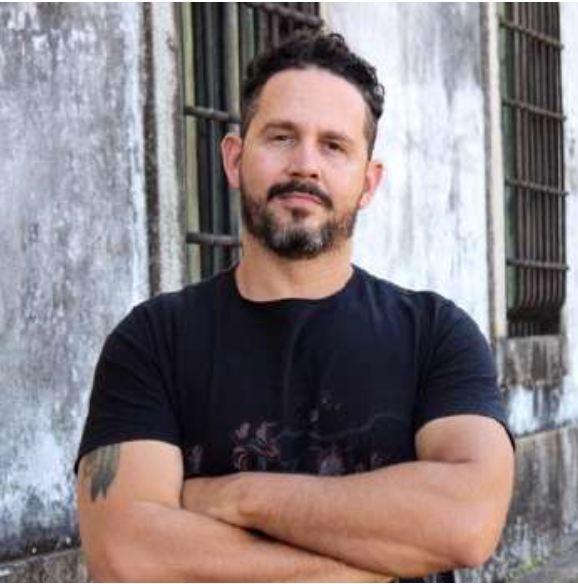
Director: Aly Muritiba
Writers: Aly Muritiba, Henrique dos Santos
Producers: Antonio Gonçalves Junior, Luís Galvão Teles
Starring: Antonio Saboia, Pedro Fasanaro, Thomas Aquino, Laila Garin and Cynthia Senek
RELEASE YEAR 2021
RUNNING TIME 120’
WEBSITE
https://grafoaudiovisual.com/en/cinema/deserto-particular-2/
AWARDS: BNL People’s Choice Award (Giornate degli Autori, 2021)
FESTIVALS:
Giornate degli Autori (Italy,2021)
São Paulo International Film Festival (Brazil, 2021)27 Edición del Premio
Thessaloniki Film Festival (Greece, 2021)
José María Forqué (Spain, 2021)
Panorama Internacional Coisa de Cinema (Brazil, 2021)
29th MixBrasil Diversity’s Culture Film Festival (Brazil, 2021)

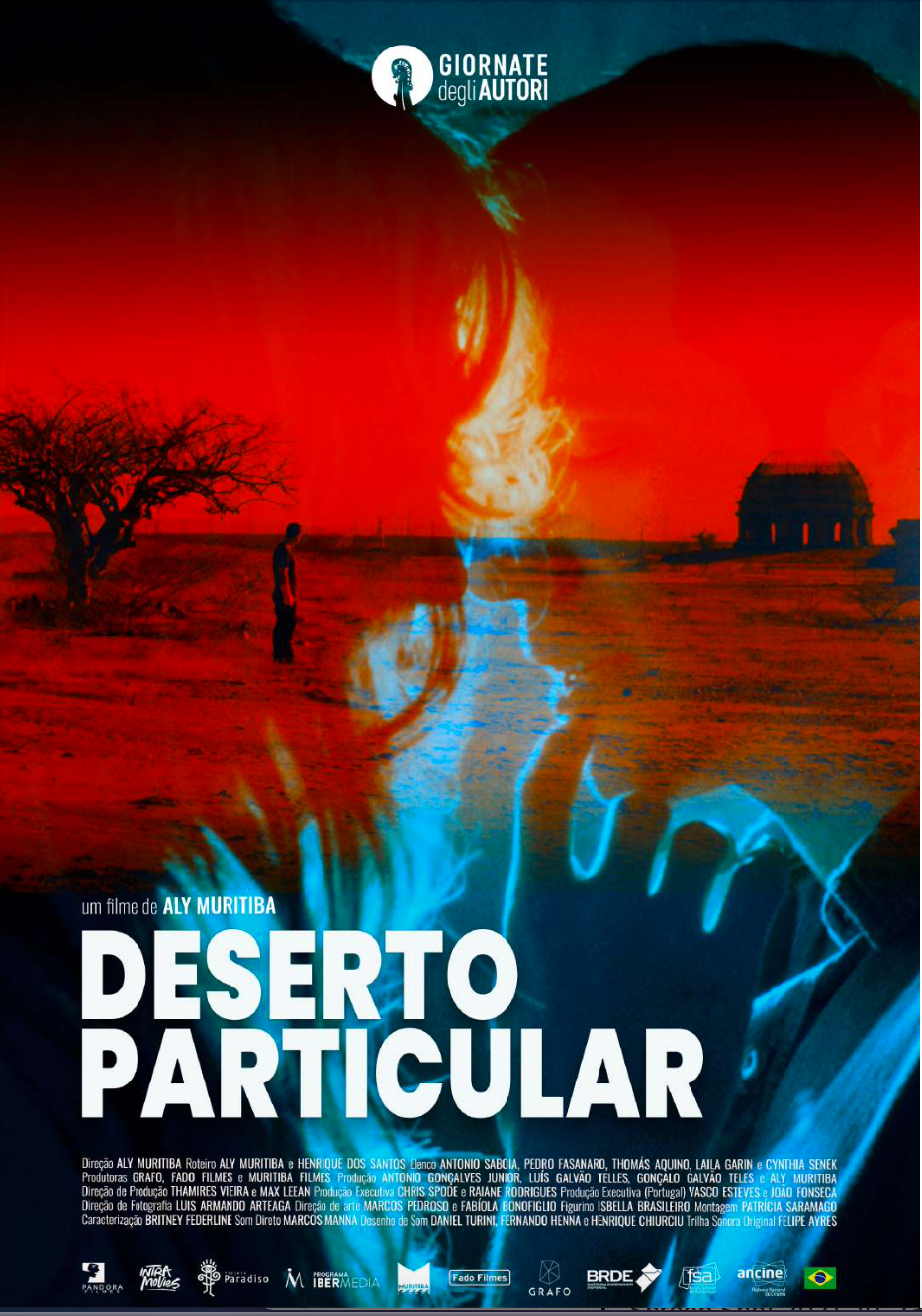



No comments:
Post a Comment